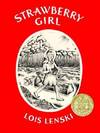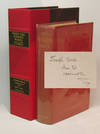
Das Elltern die kinder zur Ehe nicht zwingen noch hyndern, Vnd die kinder on der elltern willen sich nicht verloben sollen
by Luther, Martin (1483-1546)
- Used
- Fine
- Hardcover
- first
- Condition
- Fine
- Seller
-
Chevy Chase, Maryland, United States
2 Copies Available from This Seller
(You can add more at checkout.)
Payment Methods Accepted
About This Item
[Wittenberg]: [Cranach and Döring], 1524. FIRST EDITION. Hardcover. Fine. Bound in modern drab wrappers. With a title border by Lucas Cranach the Elder showing Luther's monogram and the Luther rose (Luther, Titeleinfassungen, Plate 42). This particular woodcut border is significant; it marks the first time Luther's initials and the "Luther rose" have been incorporated into the woodcut itself to show that it is the first, authorized edition. Very light soiling to title and blank verso of final leaf. Tiny tears at head of title, a few marginal spots. 16th c. inscription at foot of title page. Marriage was a subject that occupied Luther from the very earliest days of the Reformation, when clerical celibacy was a central issue. Over the course of his life, Luther wrote numerous works on different aspects of marriage and its challenges, including divorce, impotence, adultery, and incompatibility. Luther, who married the former nun Katharina von Bora (Luther's "Katie"), wrote that children were the greatest gifts of marriage.
"Parents had a crucial role to play in their children's entrance into the married state. Protestant and Roman teaching held the free mutual consent of the parties in an exchange of vows to be the constitutive act of marriage, although the reformers did not continue to regard the rite as a sacrament. They also parted ways on the validity of so-called secret marriages - that is, the freely exchanged promises between two parties of legal marriageable age, without public witnesses or parental consent. Whereas Roman canon law recognized such unions, Luther and other Protestant reformers vehemently opposed them, largely on the ground that they violated the Fourth Commandment. Luther believed that a child should not become engaged or marry without parental knowledge or consent, and that if he or she did so, the parents had the authority to dissolve such a union. However, he also insisted that such interference must be for substantive reasons. He did not concede to parents the authority to prevent a child's marriage arbitrarily."(Bunge, The Child in Christian Thought, p. 155)
"In April 1524, Luther expressly published his comments on this subject in 'That Parents should never compel nor hinder the marriage of their children and that children should not become engaged without their parents' consent.' Parents are to help their children or else they overstep their bounds. Luther demands that in these matters a child should practice the suffering of Christian obedience, although, because of his weakness, the child has the right to involve the government at a mediator. The command to honor one's parents had its limits when it came to engagement and when parents would not help their children get married. They could not compel a child to remain single. If the marriage had already been consummated, it was wiser for the parents to consent after the fact. According to human law, the obedience demanded by parents was to be followed as long as they did not abuse their position but the Christian course of action was to seek an agreement and, if necessary, even to tolerate a violation of the law of obedience to parents."(Brecht, Shaping and Defining the Reformation).
"Parents had a crucial role to play in their children's entrance into the married state. Protestant and Roman teaching held the free mutual consent of the parties in an exchange of vows to be the constitutive act of marriage, although the reformers did not continue to regard the rite as a sacrament. They also parted ways on the validity of so-called secret marriages - that is, the freely exchanged promises between two parties of legal marriageable age, without public witnesses or parental consent. Whereas Roman canon law recognized such unions, Luther and other Protestant reformers vehemently opposed them, largely on the ground that they violated the Fourth Commandment. Luther believed that a child should not become engaged or marry without parental knowledge or consent, and that if he or she did so, the parents had the authority to dissolve such a union. However, he also insisted that such interference must be for substantive reasons. He did not concede to parents the authority to prevent a child's marriage arbitrarily."(Bunge, The Child in Christian Thought, p. 155)
"In April 1524, Luther expressly published his comments on this subject in 'That Parents should never compel nor hinder the marriage of their children and that children should not become engaged without their parents' consent.' Parents are to help their children or else they overstep their bounds. Luther demands that in these matters a child should practice the suffering of Christian obedience, although, because of his weakness, the child has the right to involve the government at a mediator. The command to honor one's parents had its limits when it came to engagement and when parents would not help their children get married. They could not compel a child to remain single. If the marriage had already been consummated, it was wiser for the parents to consent after the fact. According to human law, the obedience demanded by parents was to be followed as long as they did not abuse their position but the Christian course of action was to seek an agreement and, if necessary, even to tolerate a violation of the law of obedience to parents."(Brecht, Shaping and Defining the Reformation).
Reviews
(Log in or Create an Account first!)
Details
- Bookseller
- Liber Antiquus
(US)
- Bookseller's Inventory #
- 4937
- Title
- Das Elltern die kinder zur Ehe nicht zwingen noch hyndern, Vnd die kinder on der elltern willen sich nicht verloben sollen
- Author
- Luther, Martin (1483-1546)
- Format/Binding
- Hardcover
- Book Condition
- Used - Fine
- Quantity Available
- 2
- Edition
- FIRST EDITION
- Publisher
- [Cranach and Döring]
- Place of Publication
- [Wittenberg]
- Date Published
- 1524
Terms of Sale
Liber Antiquus
Returns accepted within 7 days of receipt. All returns must be packed, insured, and shipped as they were sent. All returns must arrive safely and in the condition in which they were sent before a refund will be issued.
About the Seller
Liber Antiquus
Biblio member since 2020
Chevy Chase, Maryland
About Liber Antiquus
Liber Antiquus sells early printed books (15th to 18th century) and early manuscripts in a number of fields. We have been in business for 22 years and are a member of ABAA and ILAB.
Glossary
Some terminology that may be used in this description includes:
- Verso
- The page bound on the left side of a book, opposite to the recto page.
- Wrappers
- The paper covering on the outside of a paperback. Also see the entry for pictorial wraps, color illustrated coverings for...
- Plate
- Full page illustration or photograph. Plates are printed separately from the text of the book, and bound in at production. I.e.,...
- Fine
- A book in fine condition exhibits no flaws. A fine condition book closely approaches As New condition, but may lack the...
- First Edition
- In book collecting, the first edition is the earliest published form of a book. A book may have more than one first edition in...
- Title Page
- A page at the front of a book which may contain the title of the book, any subtitles, the authors, contributors, editors, the...




